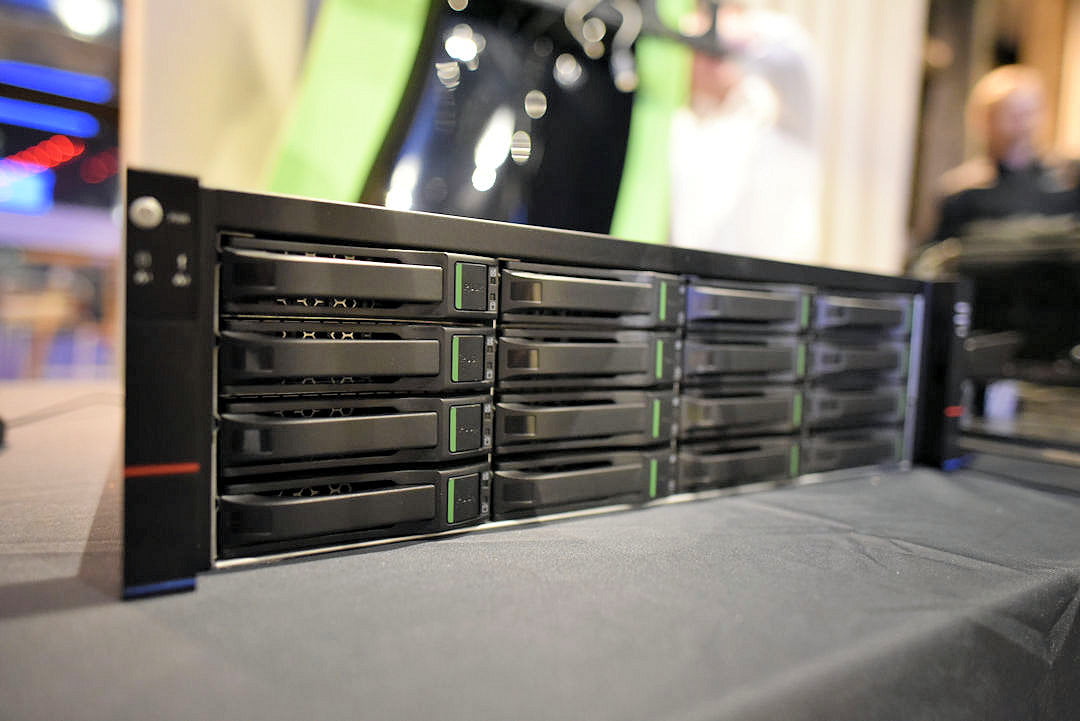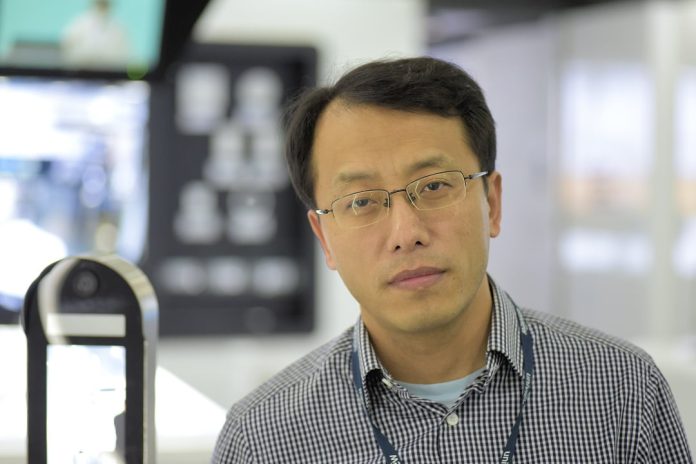SEN spoke with Uniview’s Ximen Yan recently about the technology directions of the company and where it sees the business in Australia and around the world.
JA: The electronic security market is changing very quickly – the capacity of large integrated solutions to be managed more effectively, the implementation of IVA, the broadening of the sorts of functionality required. Are you seeing those sorts of changes elsewhere in the world? How do you see the global market?
XY: We see opportunity in the market at the moment – an opportunity to grow. We have seen over the last few years virtually the entire CCTV supply chain transfer to China – maybe it’s 90 per cent of all CCTV cameras now. We think only Hanwha uses its own chipset. This suggests that whatever growth takes place in the market in the future is really an opportunity for Chinese manufacturers.
JA: Do you think Chinese manufacturers can have a similar impact when it comes to management software?
XY: Not for management software – not yet – but definitely for hardware. When it comes to AI software, then yes, Chinese manufacturers can have a significant impact on the market in the future.
JA: What are Uniview’s plans for growth over the next couple of years?
XY: Over the last year we have invested more into markets that are important for us, including Australia. We have added human resources for service and support of our technology, and for market development.
JA: Do you want more distributors in the ANZ market?
XY: We will grow our distributor numbers but very slowly and not by much. We don’t want too many distributors of Uniview products. More important than distributor numbers is the relationship between Uniview and the installer or system integrator – this relationship is very important to us. We need to let integrators know the technical capabilities of our solutions so they can communicate these to their end user customers.
JA: What differentiates Uniview from the other Chinese manufacturers?
XY: We focus on total solutions not only on single products. That’s something we want to pass on to integrators in the Australian market – our experience supporting large integrated solutions in the China domestic market. The China market is more complex than any other globally – it’s a huge market, with many large installations across verticals like education, healthcare, transport and safe city applications.
We’ve been involved in many large integrations here in China and we’ve learned valuable lessons and we want to transfer that experience to Australia. We think any experience we have here in the China market can be helpful for the global market – we want to take our experience and strength to more and more countries – that’s our strategy.
JA: Uniview is very strong on the IP side, with many different types of cameras, video access control systems, high end servers, access gateways, NVRs, mobile NVRs and more. But what’s cutting edge at Uniview – what technologies are your engineers working on right now?
XY: At the moment our engineering teams are focusing on areas like LPR, face detection and other artificial intelligence functionalities. As you saw in our showroom, when it comes to these technologies, we are ready – AI is a key area of focus for us over the next year and into the future. We are also in the process of positioning our entire product line from the high end to the entry level at almost the same cost as existing analogue products with all our cameras empowered by AI.

JA: How important is AI to the future of video surveillance?
XY: We believe AI will be more and more popular – it’s already very popular in China. It’s a basic request in China for almost every application, though it’s not so popular yet in some other countries. We believe it will become more commonly requested in markets like Australia over the next 2-3 years. The reason for the growing appeal is that the latest AI does not require a CPU or GPU but can run on an AI camera chipset. This advance means that AI is now entry level.
In the past some of the smart functions of AI were not accessible – not because they had no use but because the technology of that time returned too many false triggers. But the technology is getting better and better and we think it belongs in every camera – that’s a development that is very important for us.
JA: What about IoT, 5G and cloud – what are Uniview’s plans for those key technological developments?
XY: Certainly, another important strategy for us is to expand IoT product lines while employing a universal operating system in our products. We think that CCTV cameras are the most complex devices in the IoT ecosystem – most IoT devices are much simpler than cameras – and we will be investing in this area of development in the future.
It will be the same or similar for other regions and countries – perhaps China is moving into some new technologies faster than other countries, but I think that the requirement for security and efficiency of any country and any organisation is very similar. In future other countries will keep up in terms of adopting new technology.
JA: What do you think are the greatest threats facing the global video surveillance market at the moment? Privacy fears? Downward pressure on price? Slow AI take up? Slow internet bandwidth? Something else?
XY: Generally speaking, the video surveillance market is still at the stage of rapid growth and change. It’s difficult to predict which factors will be the biggest threats to market growth in the future but we are optimistic about market development over the next 5-10 years. It’s a long process from video surveillance to AI. In this process, there will be more opportunities for product manufacturers. Therefore, instead of worrying about what threats will restrict the development of the video surveillance market, it is better to focus on how to continuously improve our competitiveness in this fast-growing and changing market.
JA: Which low end camera type do you sell most of – and which high end camera is most popular?
XY: For UNV’s entry level products, definitely, 5MP, 8MP turret (IPC3615LR3-PF28-D, IPC3618LR3-DPF28-F) and Wi-Fi products in the easy series are the most popular models in the Australian market. Our 8MP camera has 120 dB WDR, along with some entry level intelligent function. The competitive price guarantees that it is very cost effective.
For Wi-Fi products, the special design has been applied to realize the wide range Wi-Fi signal transmission, which is stronger than the similar product in the market.
When it comes to high-end products our LPR camera (IPC262EBR9-DUPZIT) is gaining more market share in entrance and exit applications. The algorithm is specially designed for Australian license plates, helping recognition accuracy reach 95 per cent and above.
Meanwhile, Prime-IV series cameras utilize an AI chip and algorithm that can filter out nuisance targets like leaves, animals, rain, birds to get precise classification of vehicles and humans. Besides, Prime-IV cameras support accurate perimeter protection that effectively reduces false alarm. What’s more, face detection, people counting are also featured.
Furthermore, the BreSee, which is our newly developed algorithm and deep learning company which sits under our mother company, will put more and more resources into the development of the intelligent algorithm of the camera, which we believe is the future of CCTV surveillance.

JA: When it comes to AI, which is the most popular AI functionality for businesses, in your experience?
XY: When we talk about AI and video surveillance, we should not just focus on the function. There are already a lot of functions related to AI, and there will be more and more in the future. The single function is not so important, what is more important is whether the business has changed significantly.
From the perspective of bringing changes for the nature of the business, we should not just talk about face recognition, license plate recognition and so on. What we should focus on are the following 2 points:
1. Data structure as the basis for the business model change of the whole video surveillance system
2. Use of AI algorithms to reduce the error rate of basic intelligence functions such as intrusion detection.
This means smart functions become basic functions which are very easy to use – we believe these 2 points will bring essential changes to video surveillance market.
JA: Uniview has moved to a new facility over the past 12 months and is in the process of redeveloping and expanding it – what advantages does a capable R&D and manufacturing base give a technology manufacturer like Uniview?
XY: In the future, production capacity is one of the core competence of video surveillance manufacturers. Production capacity is not only the ability to produce products but also through continuously improves the production system to make the final manufacturing delivery more high quality, big quantity and flexibility. For these reasons, Uniview builds and continuously strengthens our own manufacturing system.
Certainly, the production scale of the factory is rapidly increasing, with more than tens of million products’ production capacity. We are also committed to providing excellent R&D personnel, and the most advanced technical information and knowledge to optimize and improve product development and design. Our strategy is having a complete manufacturing system to prepare for the globalization of the Uniview production system.
JA: Which areas of expertise do you think installers and integrators should be focusing on to ensure the success of their businesses in the future?
XY: Fast iteration of new technologies is always good for product manufacturers, but bad for installers and integrators. New technologies always mean higher risks and costs – this has led to the slow delivery of new technologies to end users. Manufacturers should be committed to fully considering the demands of installers and integrators at the beginning of product design, helping them from the source to reduce the risk of technology introduction, reduce risk costs, and use new technologies to generate new business profit points, etc. This is the most important point.
JA: What makes a successful CCTV manufacturer in your opinion? What does Uniview do well that other manufacturers cannot?
XY: Uniview is faster and more innovative than larger companies and is better at using scale effects to win competition than smaller companies. We can learn from the larger company for scale and learn from the smaller company for innovation and adaptability. Since the establishment of Uniview, we have consistently challenged ourselves to better balance scale and innovation and we will continue to do so.
#securityelectronicsandnetworks.com









